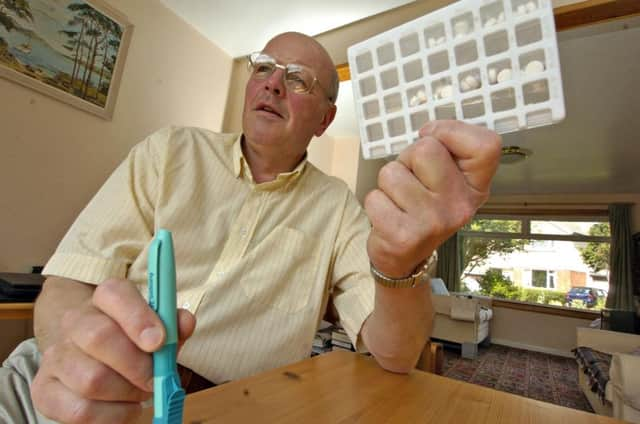Scots university brain study shows how people actively forget


A study by Edinburgh University has found that forgetting can be the result of an active deletion process rather than a failure to remember.
The findings could also help scientists understand why some unwanted memories are so long-lasting – such as those of people suffering post-traumatic stress disorders.
Advertisement
Hide AdAdvertisement
Hide AdDr Oliver Hardt, of the university’s Centre for Cognitive and Neural Systems, said: “Our study looks at the biological processes that happen in the brain when we forget something. The next step is to work out why some memories survive whilst others are erased. If we can understand how these memories are protected, it could one day lead to new therapies that stop or slow pathological memory loss.”
The experts say memories are maintained by chemical signalling between brain cells that relies on specialised receptors called AMPA receptors. The more AMPA receptors there are on the surface where brain cells connect, the stronger the memory.
The team found the process of actively wiping memories happens when brain cells remove AMPA receptors from the connections between brain cells.
Over time, if the memory is not recalled, the AMPA receptors may fall in number and the memory is erased.
The researchers also showed actively forgetting in this way helps animals adapt their behaviour to their surroundings.
Blocking the removal of AMPA receptors with a drug that keeps them at the surface of the cell stopped the natural process of forgetting, the study found.
Drugs that target AMPA receptor removal are already being investigated as potential therapies to prevent memory loss associated with diseases such as Alzheimer’s.
However, researchers say active forgetting could be an important facet of learning and memory and further studies are needed to understand what effect blocking this could have on the ability to take on new information and retrieve existing memories.
More than 90,000 people in Scotland have some form of dementia.